Week 18 (2025)
the best & worst of sensuality, loneliness & privacy, neighborhood parishes & new medical schools
Click title to open in browser. You can reply directly to this email if received in your inbox.
Enjoy this collection of digitally scrapbooked resonances… this attempt to weave unexpected connections… this Imaginary, Weekly Magazine I’d Like To (Or Need To) Read gleaned from other magazines, journals, writers, creators of good things. Perhaps it is many things. I can’t guarantee a niche (my life story, amiright) but I can guarantee the equivalent of a satisfying charcuterie board. Comments are imagined to be around a conversation table. Cheers.
to read: books
Cup Overflowing — Gisela H. Kreglinger — Thoughts. Here’s the aforementioned (and paywalled) Mars Hill Audio interview with Gisela:
“Theologian and vintner Gisela Kreglinger who joins us to discuss the spiritual and cultural significance of wine. Over the centuries, the craft of winemaking has fostered a tradition that connects people to the land, encourages practices of contemplation and attentiveness, and celebrates shared table festivities. But these cultural achievements are endangered by today’s industrial and economic habits and we run the risk of missing the rich theological significance of craft wine and what it can reveal to us about Creation.”
(The first point in ’s Living Well While Living Alone also came to mind during this book, which makes similar appeals. Kudos to Grace’s wisdom in recognizing the goodness of that boundary.)
to read: essays, articles, newsletters
Wine, Medicine, And Risks To Health — Christopher O. Tollefsen, The Public Discourse — “The new antagonism toward wine… neglects the way that wine, at its best, functions in relationships: at a family meal, a wedding, a couple celebrating their anniversary, and the Eucharistic feast. And it treats what should be an individual decision—to drink or not—entirely in terms of a statistical approach to alcohol’s health risks.”
- —
“But we have lived long enough now to witness too
many loves fade, too many covenants break, too many
wives and husbands die, walk away, or refuse to give up
their mid-life lust-affair. Even now, a beloved writer
continues sharing art and poems as if he is not cheating
on his saint of a wife. He will lose everything, he just
doesn’t know it yet.”(related: ’s Take Heed Lest You Fall Into An Affair)
Garden With Children — Reid Makowsky, Front Porch Republic — “But we also had a stronger sense of our home as an entity than we’d had before our son was born. Yes, he was a useless loudmouth, but he gave the place more telos. The garden (and I’m using the term in the British sense here) wasn’t just, or even mainly, our retreat anymore. It was the place our boy would soon play, explore, and—hopefully in the right spots—dig. More importantly, it was the place where we would all work together toward a common goal.”
- — “Loneliness is a pain that comes at the threshold crossings of life. Crossings between places, crossings between jobs, crossings between beliefs… I think it's natural to have long bouts of melancholy in life. There is a poetry in accepting the seasons of the heart, much like the seasons of the year.”
(related: ’s Loneliness Ought To Push Us Outward)
Can We Go To The Neighbourhood? — Amber Lapp, Comment — “There is a privacy that protects what is good and honours what is sacred, and there is a privacy that excludes some in order to ensure maximum pleasure and comfort for oneself. The honest question, of course, is, Where does the one begin and the other end? What is this “reasonable measure of solitude” that Houselander refers to? When are we called to retreat to interior castles, and when are we called to go outside ourselves? How can we judge what is right when measures of privacy are moving targets relative to culture, and when the arc of culture seems to bend toward isolation?”
(related from Amber: On The State Of Neighboring, shared previously)
What Is A Parish? — Matthew Walther, The Lamp — “Most of us have purchased those houses because we could afford them, because of their proximity to our work; most of us do not have a meaningful organic relationship to our postal addresses… What do I mean when I say that Costco symbolizes our way of life, and that it might also serve as an appropriate metaphor for the future of Catholic communities? …Our form of life is suburban. I use this word neutrally, without any trace of disparagement. Regardless of where we actually live, we are all suburbanites because the fundamental habits, structures, and social technologies that originated in suburbia have become universal. Our civilization is transient, convenient, uprooted.”
(related: ’s A Parish Manifesto and ’s Mega Churches & Reformed Catholicity, shared previously — and the parish shopping/hunting part had me thinking back to this conversation of … which was kind of amusing to hear how this plays out in Catholic contexts, where in one sense there is supposed to be continuity, like that’s the whole point—at least on structural matters of authority, doctrine, and teaching—and yet there seems to be lots of variation in the makeup and execution, which partially leads to this “shopping” or “hunting” as with many other Protestants. In any case, the increasing necessity of merging churches in our near future of demographic and attendance decline is insightfully laid out by Meador in his piece linked above.)
How Catholic Institutions Are Responding To The Physician Deficit — Teresa A. Donovan, First Things — “…many medical students and physicians face ongoing school, workplace, and societal pressures with regard to elective abortion, contraception, sterilization, gender dysphoria, and euthanasia… To this day, differences about what universities should be ultimately reflect profound differences of thought on what a human being is—and is created to be.”
(related: Kristin Collier’s What Is Medicine For? and ’s Calling The Ethics Consult, shared previously)
Treating Infertility: The New Frontier Of Reproductive Medicine — Ethics & Public Policy Center — The perfect collaborative endeavor to encompass a good chunk of what I’ve been trying to get at here (with some familiar, overlapping contributors). Our approaches to the complexities of the fertile body come with both acute and widespread physiological, social, and moral ramifications. What a gift that this collective effort was accomplished to explain as much. I’m reading through sequentially. This sixth week: The Impact of Nutrition on Fertility and the Central Role It Ought to Play in Fertility Care by Victoria Peck-Gray, RD — “…many couples are seeking out providers like me who practice restorative reproductive medicine (RRM), a model of fertility care that aims to identify and correct root causes impacting fertility, often using targeted nutrition support as part of the care.”
to watch, listen to
Continuing On:
The Natural Womanhood Podcast with
— Season 3, Episode 10 — Why Reproductive Life Planning Matters for Health & Happiness — Did they reference That One Book I Continually Receive Goodreads Traffic On? Yes they did.Woven Well Podcast with
— Episodes 59-61 — Can I Really Use Creighton Myself??, LUF Syndrome 101 and Client Story: Carsyn (Trust) — Confirmed this week she is real. Now to see the faces of all of y’all.
(more resources on female embodiment in the Big Ol' Compilation — now unlocked)
to glean from: tip, product, resource
You Need More Flowers In Your Life
Circling back on
’s list of beatiful books for Easter baskets, our boys are obsessed with the ones I ended up getting: Up In The Garden and Down In The Dirt, Pelle’s New Suit, and Betty and The Mysterious Visitor. The latter’s illustrations are so wildly gorgeous. I am inspired to become the grandmother, growing and wearing and decorating with florals, botanicals, the natural world.Which reminded me to acquire flower seeds for the garden, so I did that and then kept looking at flowers, reminding myself of the time when my Covid-Time obsession was learning about flower farming. Honestly our garden vegetables are optional. But the flowers, even if humble ones, are a necessity.
Which reminds me, if you save those brown glass bottles from essential oils, tinctures, face oils/serums, spray bottles… you can develop quite the collection of beautiful little vases for cute little flowers picked by chubby little hands. I keep a bunch lined up on our kitchen windowsill.


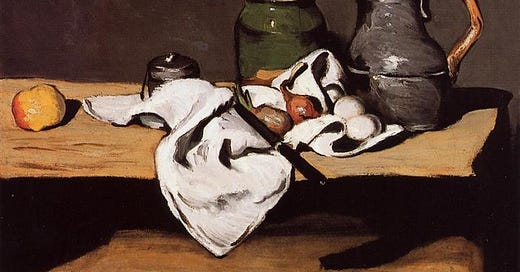


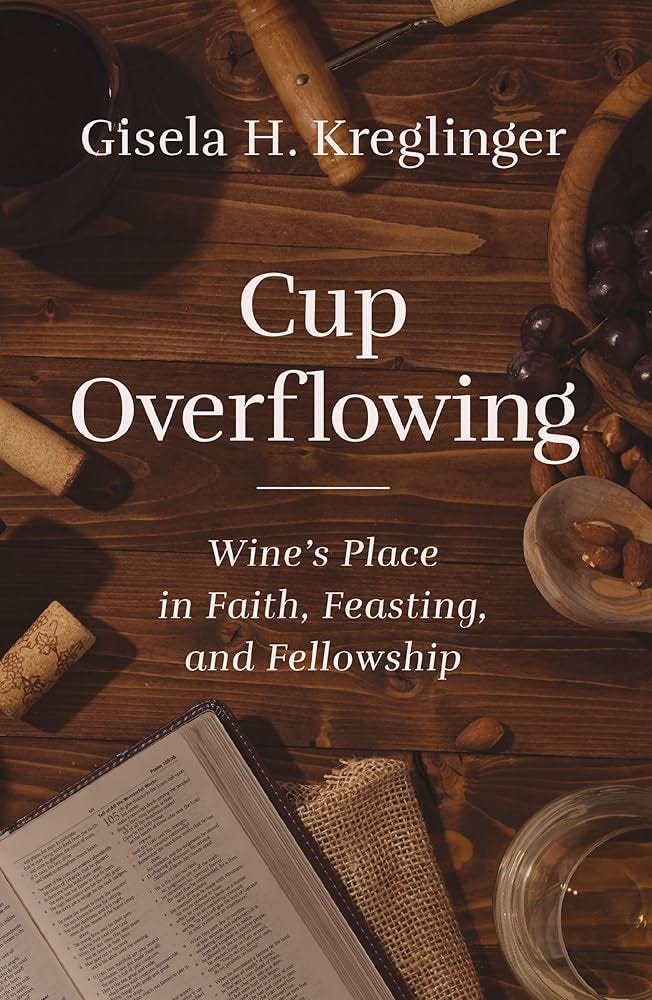

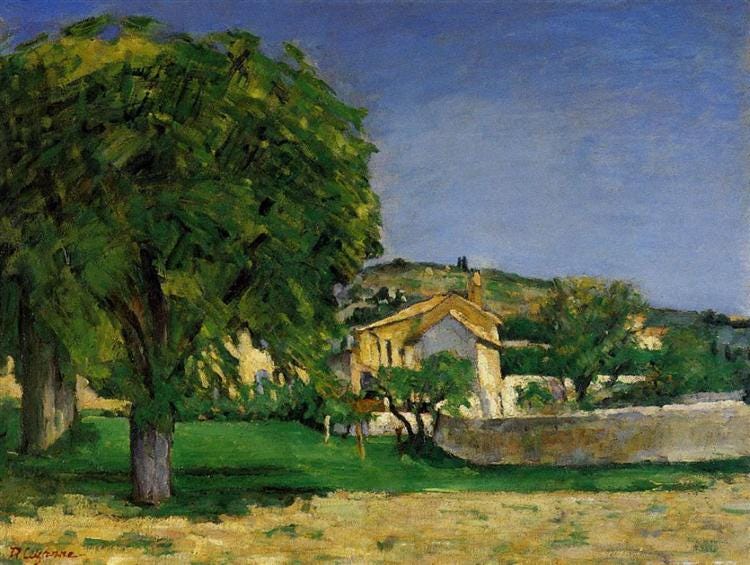
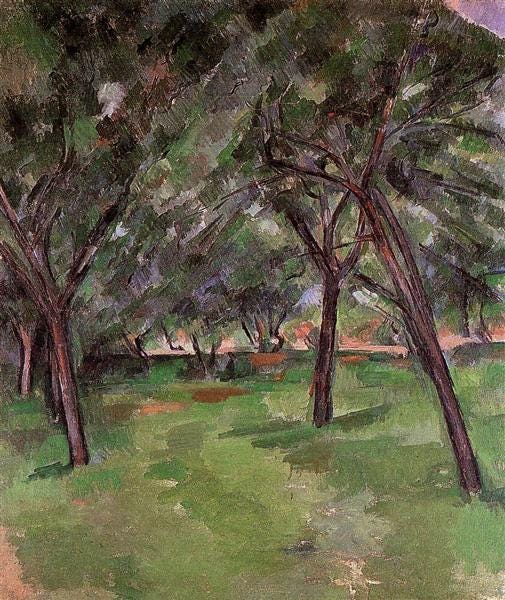
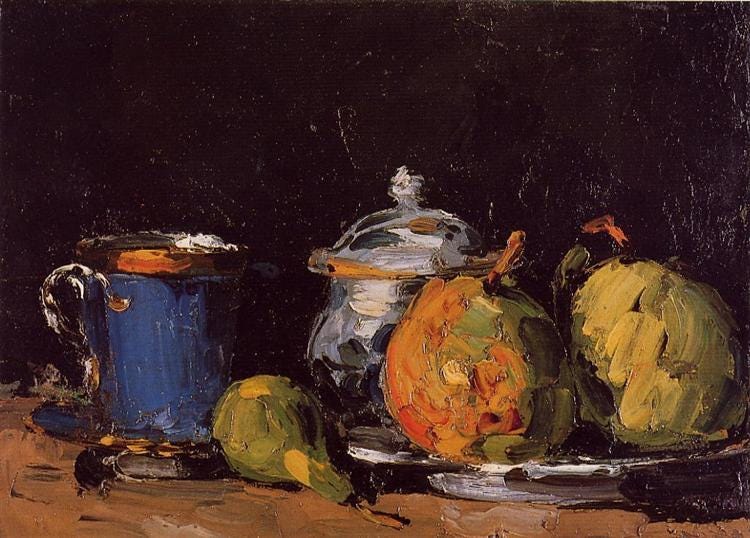
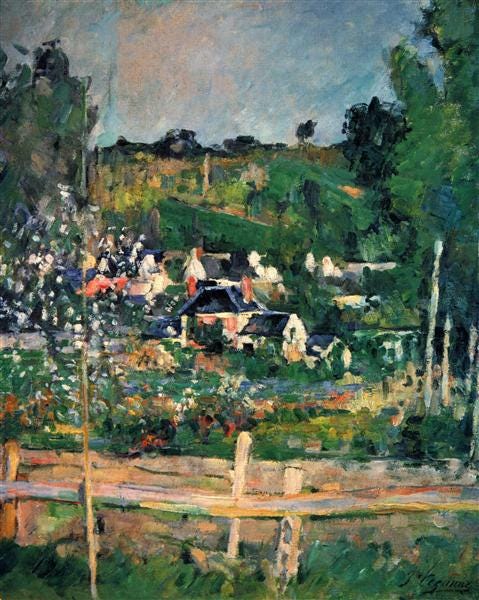
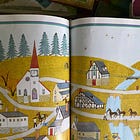


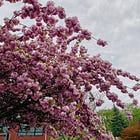
Whoa I was blessedly not aware of the hate on alcohol going on and I think it’s so silly, but also so predictable. Medicine keeps viewing the human body as a materialistic machine, and if we are machines, there’s hope of immortality. I’m so glad that essay linked it to Covid. In my experience of it, sure, very very few of our immunocompromised patients got Covid, but every single one of them suffered from severe loneliness and many of them, delayed recovery, because we limited all their social interaction. Not to mention the delayed diagnoses because so many people no longer had a neighbor or church member take a good look at him and ask, “Are you feeling ok? You should get checked up.” A glass of wine and a good conversation would have done all of us some good, then.
Also I’m curious if ACOG is ever going to quit hiding the European secret from Americans: plenty of pregnant women drink alcohol and their babies are fine. I learned this in my fourth pregnancy what?!
(Thanks for linking my essay, I needed the reminder I wrote that, for myself, today.)
I got Betty and the Mysterious Visitor too for my daughter who loves to garden with her grandma :) And I have spent quite a bit of time pouring over the pictures even without any kids around. Emily Sutton makes me want to make art.
I'm looking forward to reading a lot in here, but especially the "What is a Parish" essay. It wasn't until we started attending our current teeny-tiny parish tucked between houses in a neighborhood that I felt like I really understood what a parish is. Ours really is our home, and I can't imagine life without it.